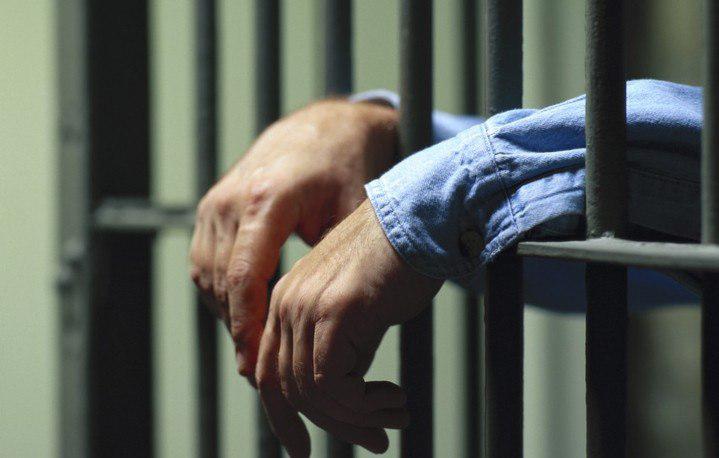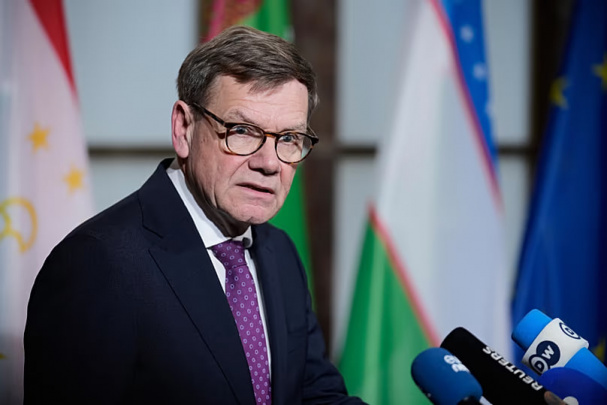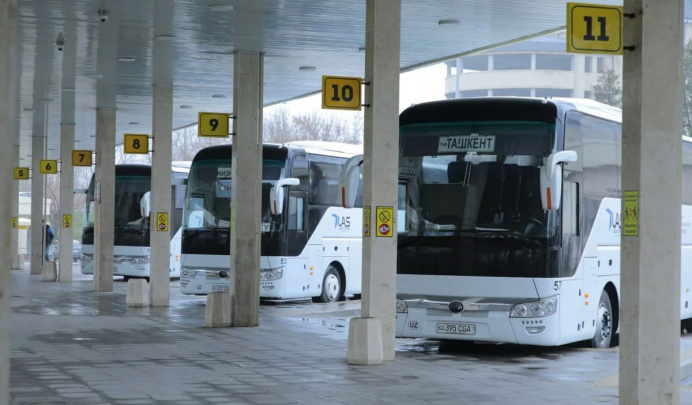Slander or fact: Russia sentences three Uzbek citizens for alleged involvement in IS

The Moscow District Military Court sentenced three natives of Uzbekistan in a penal colony for their alleged involvement in the “Islamic state” movement.
According to Kommersant, Dilshodbek Yuldashev, Azamatjon Urinov and Adiskhon Khusanov were charged with creating a terrorist cell near Nizhny Novgorod and appeals to support the caliphate, which the convicts recorded on mobile phones. According to the defendants and lawyers, they gave an oath of loyalty to the head of ISIS Abu Bakr al-Baghdadi, on the background of a black flag for the money offered by an FSS informant named Ulugbek with connections in Turkey and Syria. The security services did not open a criminal case against him, allowing him to leave for Uzbekistan.
The natives of Uzbekistan Dilshodbek Yuldashev, Azamatjon Urinov and Adiskhon Khusanov were detained by FSS officers in June 2018 on suspicion of creating an Islamic State banned cell in Russia in Bor city near Nizhny Novgorod.
In the house on Mayakovsky Street with weapons in their hands on the background of the black flag of the Islamic State, they swore loyalty to the leader of the terrorist community Abu Bakr al-Baghdadi urging to fight for the caliphate in Syria. All this was recorded on a mobile phone camera. According to the materials of the criminal case, in an apartment rented by a friend of convicts named Ulugbek, two taxi drivers and a builder talked about religion, war and caliphate, the prospects for a trip to Syria, preparing to help the wounded brothers and sisters in the war who needed medicines. As their emir, they chose Azamatjon Urinov, a relative of the second defendant in the criminal case Adiskhon Khusanov, to whom Dilshodbek Yuldashev was a friend. Meanwhile, Ulugbek recorded everything that happened on the camera in order to submit to the special services.
At the beginning, Azamatjon Urinov and later on, the others were taken to the FSS office in Nizhny Novgorod region. According to the defendants, they were forced to confess their involvement in a terrorist organization (Part 2 of Article 205.5 of the Criminal Code of the Russian Federation). However, the information about facing physical force was observed only in Azamatjon Urinov. The head of the investigation team Sergey Sosunov said that they had not applied any measures to the detainees, they themselves admitted everything. Later, those involved in the criminal case refused to testify before the court, at which they denied their guilt.
According to them, Ulugbek begged them to take oaths of loyalty to the IS for several days telling about his links with terrorists in Turkey and Syria, but they refused. As a result, Ulugbek invited them to repeat the bayat (oath to the emir) behind him on the camera under different names for money, promising 20,000 rubles each. To do this, he brought the flag of the “Islamic state” to the apartment and asked the guests to hold Makarov pneumatic pistols, a Kalashnikov assault rifle and a knife, which taxi drivers carried just in case and were often photographed with them in the car.
Soon, the videos reached FSS officers. Not all the defendants received the money, but Ulugbek repented and escaped prosecution. He went home to Uzbekistan, from where he was interrogated by videoconference as a secret witness. He stated that he did not offer any money to anyone and they organized the terrorist cell in his apartment themselves.
The defendants did not admit their guilt. In addition to statements about the testimony obtained by force, they reported that they did not understand the essence of terrorism and were not interested in the “Islamic state”.
According to defendant Urinov, he only occasionally read prayers and did not perceive bayat spoken in Uzbek as an oath to the leader of the IS. Dilshodbek Yuldashev insisted that he came to talk, drink beer and play on the phone. He learned about the banned organization only during the investigation. Adiskhon Khusanov called the incident a provocation of the special services and said that he was going home, but Ulugbek dissuaded him. When the prosecutor asked the defendants for 16 years of strict regime, all three cried and begged not to punish them and deport them to Uzbekistan.
At the same time, during searches, they found pneumatics, knives, various mobile phones and several hundred SIM cards, which, they told, belonged to their former residents, allegedly working as promoters of cellular operators. The ISIS flag found during searches, the defendants said, belongs to Ulugbek – a canvas gift to him from Dagestanian friends.
The defenders tried to convince the court of the inconsistencies of the criminal case and procedural violations. According to the lawyer Yulia Michurin, after the arrest of her client Dilshodbek Yuldashev, the conscripted soldiers working in the FSS department, and then the Federal Penitentiary Service (FPS), became witnesses.
The video recordings in which Ulugbek explains the origin of the flag were examined by the court as written evidence without viewing in the courtroom. The lawyer Shukhrat Khamrakulov noted that the testimony of his client Azamatjon Urinov was obtained by force and the defendant’s relatives filed a statement with the prosecutor’s office, but the results of the check are not available yet.
The defenders stressed that the identity of Ulugbek, who allegedly had connections with terrorists, was not investigated: instead of bringing him to a criminal case, the FSS officers released him to his homeland. The lawyers did not rule out that the name of Ulugbek may be the informant of the chekists Abdurafik Artikov, who earlier testified in other terrorist cases against migrants. However, according to the publication, the defendants did not identify him as Ulugbek.
As a result, the court reclassified and mitigated the article of the prosecution to “preparation for participation in a terrorist organization”. Dilshodbek Yuldashev and Azamatjon Urinov received six years in a strict regime colony, while Adiskhon Husanov was sentenced to seven years.
After consulting with relatives of convicts, the defense plans to appeal against the verdict.
Related News

12:11 / 13.02.2026
Germany urges Central Asian states to comply with Russia sanctions

11:35 / 13.02.2026
Foreign business presence in Uzbekistan nearly doubles in five years

19:54 / 12.02.2026
Statistics Committee reports decline in overseas study trips

20:01 / 05.02.2026




